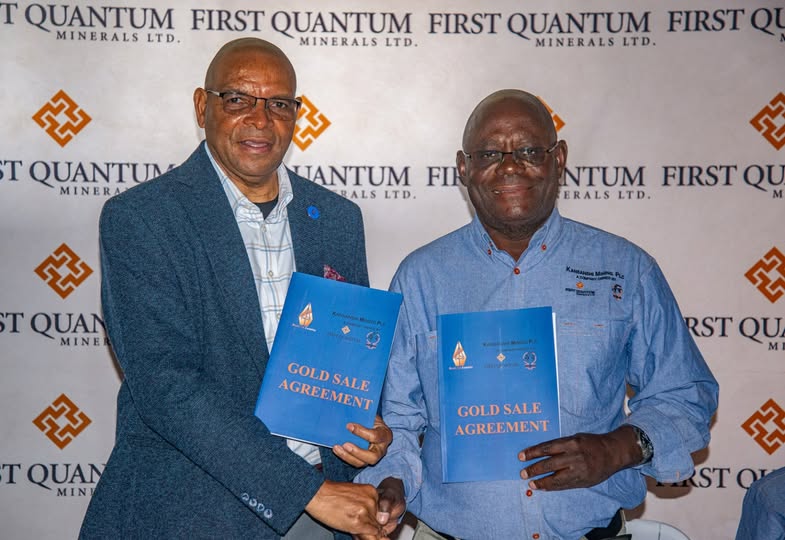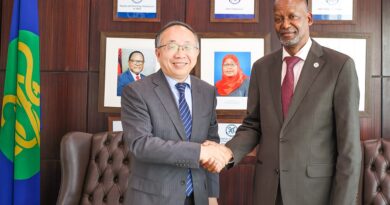Kansanshi Mining Signs New Gold Supply Deal with Bank of Zambia
Kansanshi Mining PLC has signed a renewed gold supply agreement with the Bank of Zambia (BoZ), committing to sell the majority of its gold output directly to the central bank, with payments to be made in Zambian Kwacha. The agreement was formalized during a ceremony held in Solwezi and marks the continuation of a partnership that began in 2020.
Since 2021, Kansanshi has delivered 61% of its total gold ore output, amounting to 2.8 metric tonnes, to BoZ. Speaking at the signing event, Kansanshi Mining General Manager Meiring Burger emphasized the strategic importance of the deal.
“This partnership isn’t just about numbers. It’s about building national reserves and contributing to Zambia’s economic sovereignty,” Burger stated.
The decision to trade in local currency is seen as a step towards reducing Zambia’s reliance on foreign exchange in key mineral transactions and is expected to strengthen the Kwacha within the national economy.
BoZ Governor Dr. Denny Kalyalya praised the ongoing collaboration, calling it a “testament to mutual trust” between the central bank and Kansanshi Mining. He noted that since the first agreement was signed in December 2020, the central bank has purchased 2.8 metric tonnes of refined gold from Kansanshi.
“Our collaboration with Kansanshi has shown what’s possible when public institutions and private companies work together with mutual trust and national interest at heart,” Dr. Kalyalya said.
He further revealed that the BoZ is expanding its domestic gold purchase programme to include small-scale and artisanal miners, aiming to boost national gold reserves. Despite the expansion, the governor stressed that Kansanshi remains a key supplier and strategic partner.
In addition to its gold supply, Kansanshi Mining is also contributing to local value addition by selling copper cathodes to Zambian manufacturers such as ZAMEFA. The company reported purchasing US$2.6 million worth of copper cabling for its S3 expansion project, demonstrating its support for local industry and economic growth.
The renewed agreement is expected to enhance Zambia’s economic resilience by promoting local currency usage, increasing gold reserves, and supporting domestic manufacturing.



